#1974 Notes
Explore tagged Tumblr posts
Text

Untitled, William Eggleston, 1974
#william eggleston#photography#vintage photography#vintage#1970s#american#color photography#portrait#1974#100 notes#250 notes#500 notes
837 notes
·
View notes
Note
Imagine receiving phone calls for self aware kylar, like someones phone is ringing you know it's not yours because you didn't hook your phone up, but after the 3rd no answer you pick you your phone and see it was the one ringing so you pick even though no one could be calling you, and it's just kylar (I not entirely sure what he would say probably something about missing you and wanting you to come back)
-notes anon
Do you think he'd have to use a text to speech voice at first, cause he was never programmed to make sound ? Like, he tries telling you he loves you and it's just the tiktok voiceover woman. Or we can be nice and say he's got a voice, we just can't hear it.
But he's ecstatic, he's figured out how to contact you in the real world, meaning he's one step closer to having you in his arms forever! When you pick up his calls, the first thing you can make out is some sort of glitched giggling and heavy breathing. You try to hang up and block the number, but your phone won't let you. Even turning it off won't work. Please let him hear your melodic voice, he's worked so hard for this, won't you indulge him darling ?
Spam calls all the time, you might have to get a secret second phone just to get anything done.
#notes anon#apple answers#self aware kylar#self aware dol#if any of you have seen black christmas (the 1974 slasher) he kinda reminds me of billy lenz ? in the phone call department
18 notes
·
View notes
Text

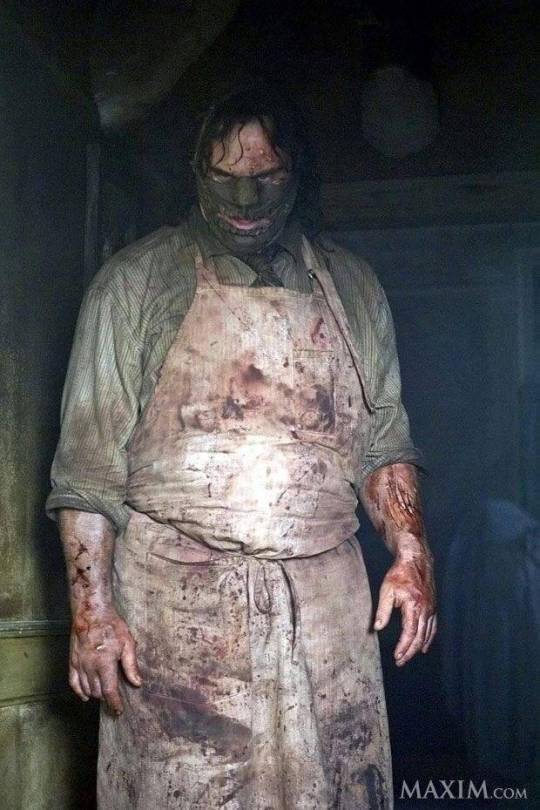
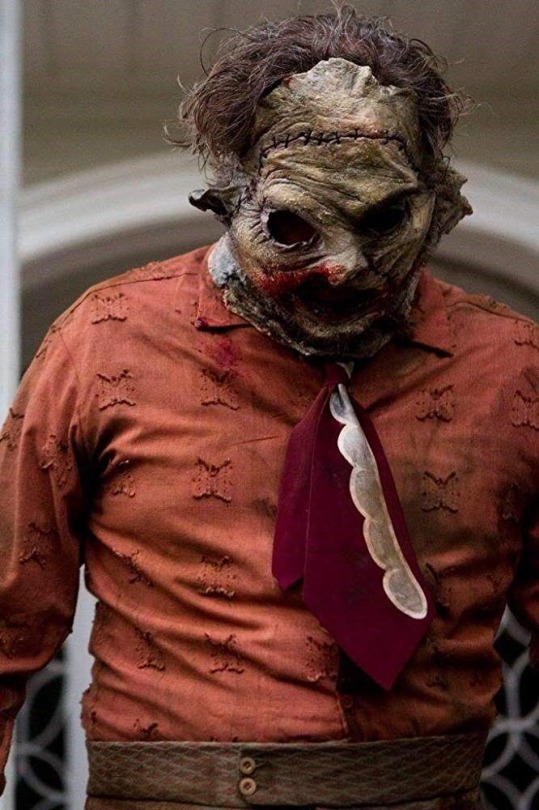
#the texas chainsaw massacre#leatherface#i know i made this exact poll on my main at the beginning of the year#and thomas won by a landslide but#ive been seeing an uptick in notes for that poll even though its over and i need more jed votes#tcm#texas chainsaw massacre 1974#texas chainsaw massacre#bubba sawyer#thomas sawyer#jedidiah sawyer#tcm3d#texas chainsaw massacre 3d
75 notes
·
View notes
Text
"In its psychoanalytical meaning, fantasy refers to a thought process that is disconnected from reality; either it is a distorted memory from an actual event that took place, or it is that which hides from the self the reality of its instincts. In The Interpretation of Dreams, Sigmund Freud offers an additional perspective and views fantasy in terms that are very similar to dreams: that is, as compromise formations. In a compromise formation, the subject is unable to directly express her or his wishes—they must remain unconscious—and develops “symptoms” that at once express and deny the wish. The neurosis, fantasy, and dream then have the same function: they contain that which they deny and oppose; they thus address obliquely and indirectly a desire; they say without saying; they simultaneously contain and deny a certain reality. Dreams, fantasies, and neuroses address the world in this way because consciousness is obliged to repress content. Repressed content can refer to a taboo (sociologically: something deemed illegitimate) or to an object that elicits pain (e.g., desiring someone who regularly hurts and abandons us). Fantasy is not only a way to transcend the limitations of reality but also a way to incorporate that reality into the very gesture of fleeing from it (e.g., I may fantasize about hurting the person I actually desire). What is so powerful, then, about the Freudian notion is its view that fantasy both presents and distorts reality. Fantasy works around reality, incorporates it, defends the self against reality, and yet helps one live with it. In this view, a fantasy is a mediation between different systems, it includes that which it denies, and it offers a transition between different aspects of consciousness. We may surmise that this is also the reason that fantasy plays a crucial role in psychic and collective life, precisely because it addresses conflicts and deprivations and helps resolve them."
Eva Illouz, Hard-Core Romance
#eva illouz#Hard-Core Romance#freud#quote#fantasy#desire#words#also just a note: a citation has been removed for 'flow' but if anyone wants to seek it out i've put it in the next tag#the citation for the line after the first semi-colon: (Laplanche and Pontalis 1974
26 notes
·
View notes
Text
this interview of foudeqush saying ludwig göransson asked her to write con la brisa as if she was describing the sun to someone who had never seen it (time stamp 08:25 — sub "él me dijo escribe una canción como si tu quisieras explicarle a la alguien que nunca ha visto el sol como es el sol") gives so much more depth to the song than i initially thought (and i had a lot of thoughts lmao)!
when she sings:
it has the intensity of your eyes
it burns more than fire and it reflects on broken glass
and
amongst the shadows, my love, you are the brightest sparkle
how beautiful, how beautiful
that's why, my love, you remind me so much of it
the "it" she's talking about is the sun! the "you" are the talokanil!* and that just adds so much more gravity to k'uk'ulkan bringing the sun to his people in the depths of the ocean 🥹
despite the horrors he encountered on the surface the day he buried his mother, the beauty of the sun and the sky is still seared in his mind. it breaks his heart further that he cannot share it with his people, but he is a god, is he not? he will create a sun for his people, a promise, a hope, that one day they might — without fear — behold the sky with their own eyes, feel the breeze kiss their skin, no matter if he has to burn the world for it.
he pledges just as much in the following lines:
i will give my whole life
to get you out of the gloom
i will break with your penitence
in this world that's falling apart
give me a little bit more time
'cause my last breath i will give
to show you the entire sky
in the clouds, with you, i will [lie] down
and
i promise one day you will open your eyes
and you will appreciate the reddest tones the sky has to offer
and perhaps, to the talokanil, the afterlife is not the underworld — after all, are they not already living in it? — but in the sky, in the wind, in the breeze. their battle cry "líik'ik, talokan!" ("rise, talokan!") — when their whole lives have been spent in the depths, being pushed further and further into the dark and the cold by the threat of discovery by the surface world — thus ironically takes on a heavier meaning.
and we blend in with the breeze
and we sail with the wind
the mentions of the breeze and the wind in the song may also be in reference to zamá (aka tulúm, the ancestral lands of fen's people) being home to the temples of the god of the wind (el templo del dios del viento) and the diving god (el templo del dios descendente) — both associated with kukulcán.
bonus!
this excerpt from miller (1974) gives us a glimpse into the worldbuilding that went into talokan:

"the incredible green blue color of the sea off the east coast symbolized rebirth" — the talokanil "died" and were reborn, one physical manifestation of this being their blue skin.
"representations of umbilical cords attached to newborn figures are prominant (sic) at tulum"; "the diving god shown prominantly (sic) in the inner building if structure 25 is also shown associated with the cosmic umbilical cord" — the film does focus quite a bit on the umbilical cord during the birth of k'uk'ulkan (the diving god).
"round structures are associated with kukulcan" — and what else is round? 😉 (the sun. i mean the sun. also, as far as i can tell based on repeatedly pausing the con la brisa movie clip, talokan appears to be built like a hollow globe, with the talokan sun rising from the bottom center point.)
--------------
* i'm using the official english translation for accessibility and bc the original spanish is more vague about the "it" and uses the singular "tú" for "you" and its associated conjugations ¯\_(ツ)_/¯
#black panther: wakanda forever#bpwf#con la brisa#mcu talokan#mcu namor#mcu k'uk'ulkan#the whole interview with foudeqush is in spanish my rudimentary spanish comprehension was fighting for its life#google translate had to step in lmao#the depths to this song. the LAYERS#i don't fault anyone for their romantic reading of it though the ambiguity was likely on purpose#anyway. once again talokan is living rent-free in my brain#btw i'm taking miller w a grain of salt bc this was written in 1974#but it fits so well 💀 might as well take away my bachelor's degree now!!#lemme know if the links don't work#long post#calemonsito notes#namor#foudeqush#ludwig göransson
88 notes
·
View notes
Text
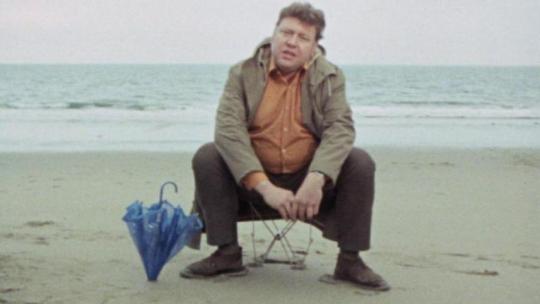
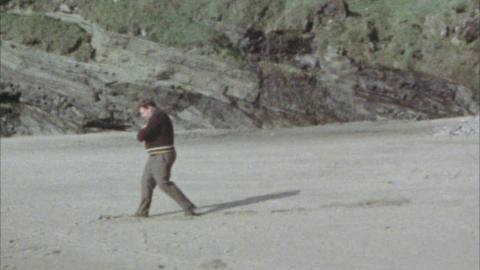
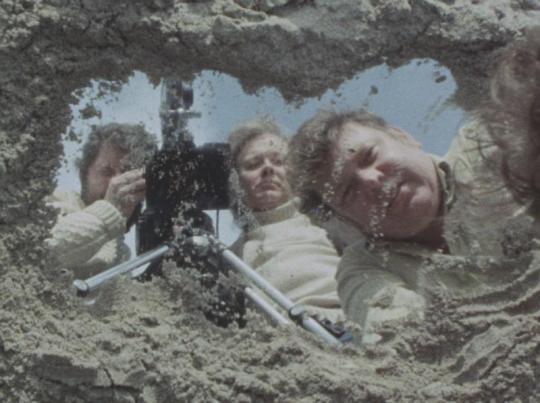
Fat Man on a Beach (HTV, 1974)
"I'm going to read some more poems now. Erm. It may be that if you want to go and have a cup of tea, this would be a good time. I know that's what you masses are like. The mention of poetry and off you go."
#fat man on a beach#b.s. johnson#classic tv#documentary#htv#michael bakewell#aled vaughan#a frankly incredible and truly unique piece of television. according to Johnson's biographer‚ the novelist Jonathan Coe‚ this film was#described in tv listings at the time as a documentary about Porth Ceiriad‚ a rather beautiful beach on the Llŷn Peninsula in North Wales#it.. is not that. i can only imagine the baffled reactions of an idle audience tuning into HTV in 1974. true‚ this is entirely filmed at#Porth Ceiriad‚ but any element of travelogue (or even really of documentary) is dispelled almost immediately: the first lines heard are#those of an unseen narrator who tells us we are about to watch a film about a fat man on a beach. 'Do you really want to watch that?' he#asks incredulously. it's a challenge‚ the first of several from Johnson‚ who spends the next 40 minutes variously pottering about the sands#mugging to the camera‚ reciting poetry (his own and others; literary and dirty) and baring his soul. I've never seen anything quite like it#I'm not sure that much has been made that is quite like it tbh. Johnson was a fiercely original‚ brilliant mind; he was a novelist#a poet‚ a critic and a filmmaker. he was also‚ when this first aired on uk tv‚ dead. a few weeks after completing filming on this‚ his#final work‚ he sadly took his own life. i mention it not as a grim factoid but because it is a vital contextualisation of this film; the#play has been described before (and play is not the right word) as a sort of loose form manifesto from Johnson‚ a laying out of his own#peculiar philosophies and interests in a disjointed manner‚ peppered with asides and distractions and filming mishaps (all kept in the#final product). for me‚ the feeling was inescapable that this was like viewing a suicide note. whether Johnson had already come to some#conclusion on that front or not‚ the fact is that his own obsession with morbidity‚ with the spectre of death and of decay (it runs right#through his work‚ particularly his work in film) transforms this into something almost confessional. there's a section of the film where#the author recalls witnessing the aftermath of a traffic accident‚ a motorcyclist thrown through wire fencing and sliced like cheese#the absurdity of the comparison is lingered on‚ Johnson almost stalls and appears to lose his train of thought (briefly discussing instead#the modern mass production of cheese) but he also seems clearly affected‚ delivering the tale in a halting‚ reverent tone#not that this is all darkness and gloom; it's just as often funny‚ or surreal (the film frequently cuts away to a bunch of bananas‚ only#later explained by one of Johnson's biographical recollections) and includes visual puns‚ bad jokes and a few moments of physical comedy#the writer doesn't seem distressed. rather‚ he seems... if not at peace‚ then as though he has come to terms. confident in his own beliefs#and ideals. but perhaps that's reaching too far‚ or reading in what the viewer wishes to read in. the sad fact is that Johnson took his own#life‚ but he left us with a body of work unlike almost anything else‚ and which is still being celebrated and analysed today. rip bsj
3 notes
·
View notes
Text

#the little prince 1974#the little prince#steven warner#gene wilder#fox#the fox#hugs#hugging#hug#note
31 notes
·
View notes
Note
Ppl sending u corrections for ur silly anime poll are so funny to me jgksjfnqn if they made a poll like this from their perspective they would also 100% miss animes that would be no brainers for someone else to add jfjkekgkdjxjjsjw
genuinely LMAO you can only have a dozen options also, so the ppl like "you forgot [16 shows from the early 80s]" like. actually I didn't 💀
#you would think by the shows that ARE included people might be able to guess the target demographic and era range#but no I clearly forgot -checks notes- the 1-season mecha show from 1974#be so fr right now#asks
2 notes
·
View notes
Text

he's joining a rock band
#specifically. the juicy fruits as featured in phantom of the paradise (1974) dir. brian de palma#wonderful. amazing. no notes. i think roger should have this sexy thick eyeliner all the time#ds liveblogging.#977.
3 notes
·
View notes
Text
earliest known usage of the word "boysmell" was in the year 1930

just something i discovered while i was screwing around with some friends and looking up all of the slang listings on wiktionary
(i encourage everyone else to do so, pretty much every homestuck pairing you can think of is listed as a word on there for some reason)
3 notes
·
View notes
Text

Melody Drive-in, Springfield, Ohio, Steve Fitch, 1974
#steve fitch#photography#vintage photography#vintage#black and white photography#american#springfield ohio#ohio#drive in theater#1970s#1974#100 notes
157 notes
·
View notes
Text
On December 3, 2008 Zardoz was re-released in France




#zardoz#zardoz 1974#dystopian sci fi#dystopian science fiction#dystopian film#dystopain sci fi#dystopia#science fiction film#science fiction art#science fiction#sean connery#post apocalyptic film#post it notes#trash art#movie art#art#drawing#movie history#pop art#modern art#pop surrealism#cult movies#portrait#cult film
2 notes
·
View notes
Text

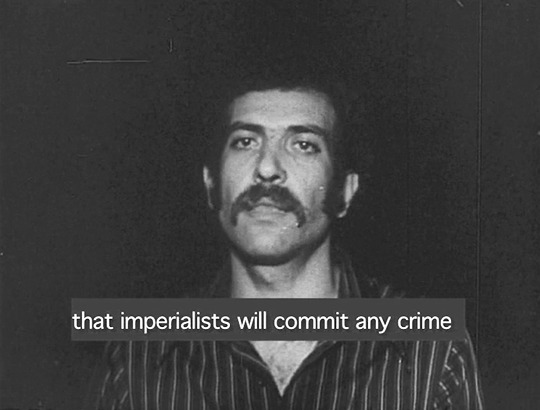
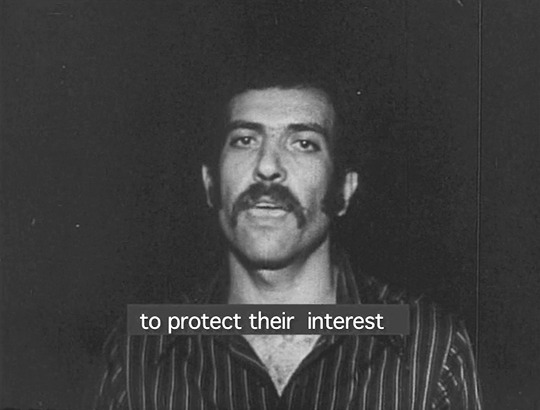

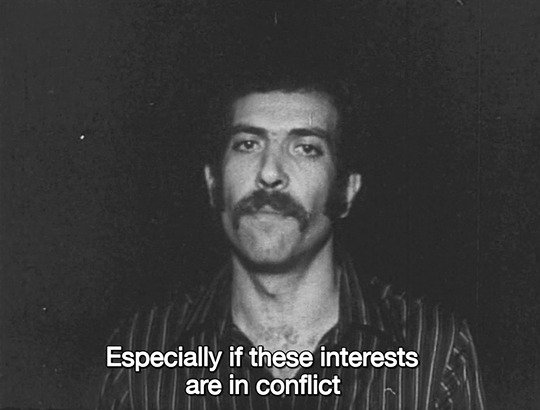
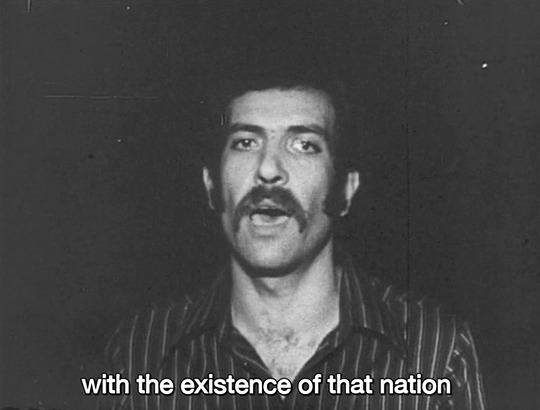


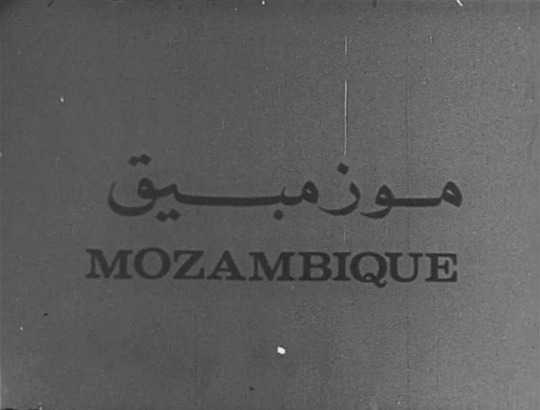

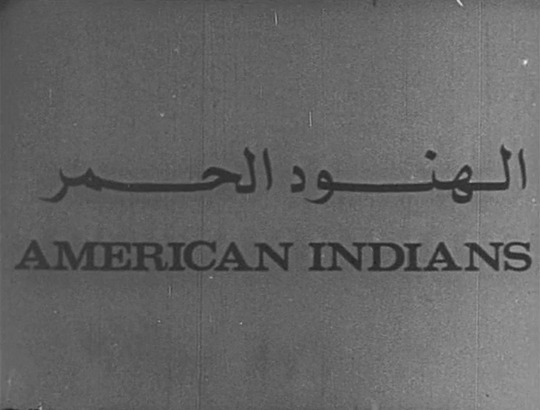

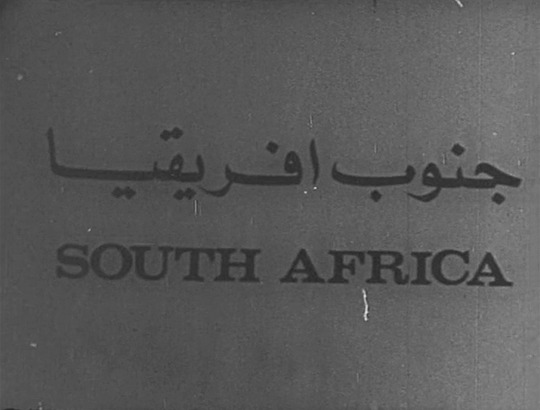



They Do Not Exist (1974) by Mustafa Abu Ali (watch)
from PalestineCinema.com:
Salvaged from the ruins of Beirut after 1982, Abu Ali's early film has only recently been made available. Shooting under extraordinary conditions, the director, who worked with Godard on his Ici et Ailleurs (Here and Elsewhere), and founded the PLO's film division, covers conditions in Lebanon's refugee camps, the effects of Israeli bombardments, and the lives of guerrillas in training camps. They Do Not Exist is a stylistically unique work which demonstrates the intersection between the political and the aesthetic. Now recognised as a cornerstone in the development of Palestinian cinema, the film only received its Palestine premiere in 2003, when a group of Palestinian artists "smuggled" the director to a makeshift cinema in his hometown of Jerusalem (into which Israel bars his entry). Abu Ali, who saw his film for the first time in 20 years at this clandestine event noted: "We used to say 'Art for the Struggle', now it's 'Struggle for the Art'"
#mustafa abu ali#they do not exist#they do not exist 1974#for the missing subs pls message me for the link. just got the yt version and the subs to sync!#palestinian cinema#documentary#screencaps#global struggle#resistance#palestine#jean luc godard#post#history
16K notes
·
View notes
Text
ok so the other age-range poll was poorly set up by having every year in the 90's be its own individual option, and then grouping together all the decades around it
sorry if you were born before 1960 but im only allowed 12 options. feel free to comment your birth year in the replies or notes.
10K notes
·
View notes
Text
Московские записки: А это 1974 год. Фотограф Валерий Усманов запечатлел автобусную остановку на Университетском проспекте. Moscow notes: This is 1974. Photographer Valery Usmanov captured a bus stop on Universitetsky Avenue. Notizen aus Moskau: Wir schreiben das Jahr 1974. Der Fotograf Valerij Usmanov hat eine Bushaltestelle am Universitäts-Prospekt fotografiert. Notes de Moscou : Nous sommes en 1974. Le photographe Valery Usmanov a photographié un arrêt de bus sur l'avenue Universitetsky. Московские записки

Waiting for the bus. Photo by Valery Usmanov (1974).
#bus stop#moscow#winter#snow#soviet union#ussr#russia#photography#Московские записки#1974#зима#снег#Валерий Усманов#автобусная остановка#Университетский проспект.#Moscow notes#Valery Usmanov#Universitetsky Avenue.#Moskau#Valerij Usmanov#Bushaltestelle#Universitäts-Prospekt#Moscou#Schnee#neige#hiver
134 notes
·
View notes
Text
medieval monks and accountants start using Italian millione ("one thousand" + augmentative suffix) to mean 10^6 by the 1200s; this spreads to other languages
Jehan Adam coins bymillion and trimillion to mean 10^12 and 10^18 in 1475
Nicolas Chuquet extends this scale up to nonyllion (10^54), with every step being another six orders of magnitude (million, byllion, tryllion, quadrillion, quyllion, sixlion, septyllion, ottylion, nonyllion) in 1484. Note that in this period, it was common to put the digit separator every six digits instead of every three.
Guillaume Budé refers to 10^9 as milliart in 1516, in a Latin text
But in 1549, Jacques Pelletier du Mans uses milliard to mean 10^12, citing Budé as a source
In the 1600s, people start putting digit separators every three digits. But some scientists and mathematicians define the numerical scale according to how digits are grouped, rather than the actual order of magnitude: thus, one billion becomes 10^9, one trillion becomes 10^12, etc, creating the short scale.
"Milliard" is eventually added to the long scale, meaning 10^9 (in keeping with Budé's usage); the first published example is from 1676
By 1729, the short-scale meaning of "billion" (10^9) has already crept into American usage
This is in keeping with French usage at the time: in 1762, the Académie Française dictionary cites billion as meaning 10^9.
By the early 19th century, France has almost completely converted to the short scale, and U.S. usage follows France; the long scale is referred to in some sources as "obsolete." But Britain is still using the long scale (and I assume Germany and most other European countries)
Over the course of the 20th century, the long scale begins to become more influential in France, presumably due to the influence of continental usage; while the short scale becomes more influential in Britain, presumably due to the influence of American English. Notably the SI system very specifically uses unique prefixes that are the same across languages, to prevent confusion!
In 1961, the French Government confirms that they're going to officially use the long scale from now on; in 1974, Britain officially switches over to the short scale, and many other English-speaking countries follow.
In 1975, the terms "short scale" and "long scale" are actually coined, by mathematician Geneviève Guitel.
One reason large number names could be so unstable for so long is, of course, that outside specialized usage they are rare, and were even more rare before modern science and large modern monetary amounts became commonplace points of discussion. Wikipedia says "milliard" wasn't common in German until 1923, when bank notes had to be overstamped during Weimar-era hyperinflation.
As it currently stands, English, Indonesian, Hebrew, Russian, Turkish, and most varieties of Arabic use the short scale; continental Europe and most varieties of Spanish outside Europe use the long scale. A few countries use both, usually in different languages, like South African English (short scale) and Afrikaans (long scale) or Canadian English (short scale) and Canadian French (long scale) . Puerto Rico uses the short scale in economic and technical usage, but the long scale in publications aimed at export.
Notably some languages use neither, having their own names for large numbers--South Asian languages have the Indian numbering system, and Bhutan, Cambodia, and various East Asian languages also have their own numbering systems. Greek, exceptionally, uses a native calque of the short scale rather than a borrowing.
1K notes
·
View notes